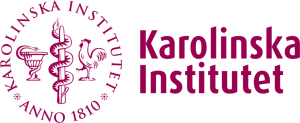EISEN hosted a webinar on enhancing knowledge and skills in implementation research on Wednesday 7th October 2020. The event featured an introduction to the EISEN project by Professor Chris Burton (Canterbury Christ Church University) and a keynote talk by Professor Jo Rycroft-Malone (Lancaster) on building a career in implementation research. Over 40 participants from countries across Europe and beyond took part.
One aim of the event was to provide an opportunity for postgraduate students, aspiring postgraduates and stakeholders with an interest in implementation science to contribute via discussion to the development of the two novel postgraduate curricula that EISEN is co-producing. Participants were asked what they would like to see EISEN paying special attention to in a postgraduate training programme; what they thought are the different knowledge and skills that are relevant for postgraduate training in implementation research; and what they thought are the challenges and opportunities associated with an international postgraduate programme in implementation research.
Below are Chris Burton and Jo Rycroft-Malone’s presentations and a summary of the main points that were raised during questions and answers and discussion.
At the start of the webinar, Chris Burton asked colleagues to identify one aspect of implementation science they would like to know more about, or that they would like to have greater confidence in. Two notable themes emerged from the range of responses offered: several identified the measuring of impact or outcomes on patient care and the evaluation of implementation programmes; and several focussed on the selection of appropriate theories, frameworks and methodologies to inform research.
Jo Rycroft-Malone answered questions following her presentation. Asked about current trends in implementation research, she talked about co-production perspectives and said she hoped this is something that will increase, while also acknowledging the challenges associated with power sharing in institutional contexts. An aspect of implementation research that Jo identified as being distinctive is the way it intersects a variety of fields and disciplinary approaches. This is something she felt gave implementation research traction in its capacity to change practices.
Asked what advice she would give to early-career researchers who are starting out or seeking to choose a research project, Jo recommended networking with members of the community, engaging in dialogue early on, including with senior researchers, and not being afraid to approach more senior figures for advice. Chris commented how mentoring is one of the key elements being developed as part of the EISEN programmes.
One participant asked about how to overcome organisational barriers to implementation, and especially to innovative practices. In response to this, Jo emphasised the importance of co-production – of working closely together with colleagues in organisations, either as part of a team or in the capacity of a knowledge broker. Chris highlighted that the programmes EISEN is developing emphasise the personal and political leadership skills required to negotiate these kinds of institutional challenges. In response to a question about deciding what knowledge, understanding and skills should be included in postgraduate courses in implementation science, Chris described how EISEN has been engaging with stakeholders to prioritise from among the wide range of competencies identified through its scoping review that it could potentially include in the curricula. One motivation in selecting from among these potential competencies was to avoid duplicating what existing programmes have to offer. This led to the focus on personal and political leadership skills, which it is hoped will complement existing programmes that focus on more traditional research methods. Several participants agreed that these leadership skills are highly important for the development of effective implementation practitioners and researchers. In response to a question about whether EISEN will address career development outside of academia, colleagues pointed out that personal and political leadership skills are highly transferrable, and hence will support individuals’ wider career development, including those who work in roles outside of academia, such as in services.
Further questions and comments raised by participants included the use of information technology to enable working across countries, including countries outside of Europe, and how widely accessible the results of the EISEN project will be. In response to these points, colleagues highlighted that the curricula produced by EISEN will be made freely available, and that it is hoped they will be adaptable to a wide range of contexts. Finally, colleagues commented that they hoped more use will be made of technology to enable remote learning and interaction to facilitate the kind productive cross-country working that is central to the EISEN ethic.





